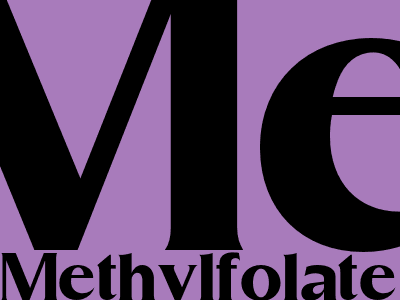
Methylfolate: The Essential Vitamin You Need to Know About
What is Methylfolate?
Methylfolate, also known as 5-methyltetrahydrofolate (5-MTHF), is the natural and bioactive form of folate, a B vitamin that plays a crucial role in various bodily functions, including DNA synthesis, cell division, and the production of red blood cells.
Why is Methylfolate Important?
Methylfolate is essential for a wide range of bodily processes, including:
- DNA Synthesis: It provides the methyl group necessary for DNA synthesis, ensuring the proper replication and repair of genetic material.
- Cell Division: Methylfolate supports cell division and growth by providing the methyl groups needed for the synthesis of purines and pyrimidines, the building blocks of DNA.
- Red Blood Cell Production: It plays a vital role in the production of red blood cells by facilitating the synthesis of heme, the oxygen-carrying molecule in red blood cells.
Benefits of Methylfolate Supplementation
Supplemental methylfolate can offer several benefits, particularly for individuals with inadequate dietary intake or certain health conditions:
- Prevents Neural Tube Defects: Methylfolate is crucial during pregnancy for preventing neural tube defects in newborns, such as spina bifida and anencephaly.
- Supports Cognitive Function: It has been linked to improved cognitive function, particularly in individuals with folate deficiency or certain neurological disorders.
- Reduces Homocysteine Levels: Methylfolate helps lower homocysteine levels, an amino acid associated with an increased risk of cardiovascular disease.
- Boosts Energy Levels: As methylfolate supports red blood cell production, it can help improve oxygen delivery to tissues, enhancing energy levels.
Sources of Methylfolate
Methylfolate is naturally found in certain foods, including:
- Leafy green vegetables (spinach, kale, broccoli)
- Citrus fruits (oranges, grapefruits, lemons)
- Fortified grains (cereals, breads, pasta)
- Legumes (beans, peas, lentils)
- Avocados
However, dietary intake alone may not always provide sufficient methylfolate, especially for individuals with certain health conditions or dietary restrictions.
Conclusion
Methylfolate is an essential nutrient that plays a critical role in various bodily functions. While it can be obtained from food sources, supplementation may be necessary for individuals with inadequate intake or certain health conditions. Its benefits range from preventing neural tube defects to supporting cognitive function and reducing homocysteine levels. If you suspect a methylfolate deficiency or are considering supplementation, consult a qualified healthcare professional for personalized advice.